Eczema: 8 Natural Remedies To Soothe Itching And Dryness
Discover effective solutions to soothe irritated skin and keep flare-ups at bay daily.
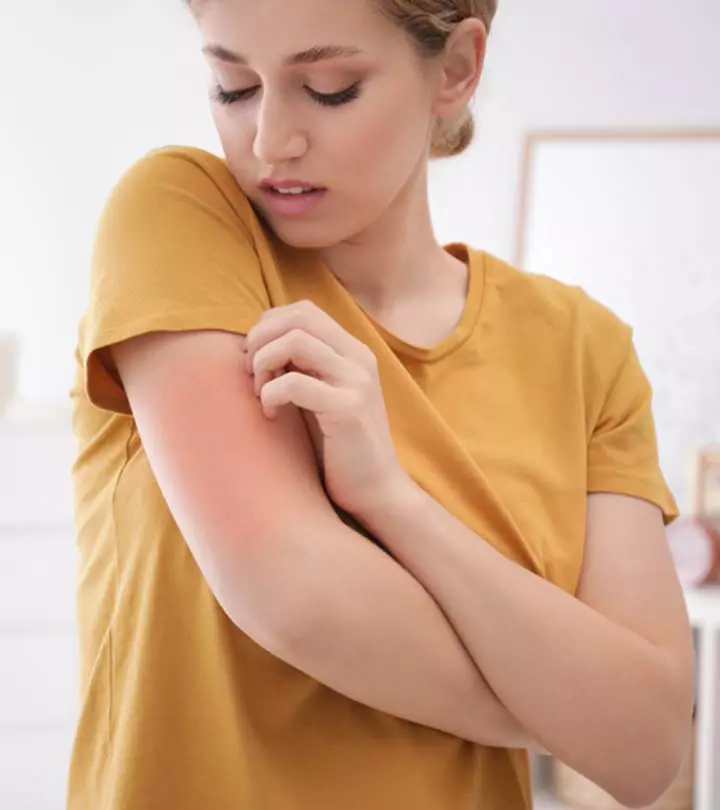
Image: Shutterstock
Eczema is a chronic skin condition that causes skin lesions, dryness, intense itching, and rash-like patches. This inflammatory skin condition is discomforting, and many often wonder how to treat eczema or get rid of the symptoms.
Treating eczema is quite challenging as it cannot be cured. The itching and irritation often lead to severe discomfort and pain in some cases. In addition, it may affect the quality of life and lead to depression and anxiety.
However, you can manage the symptoms by making a few lifestyle changes and following good skin care practices. Read this article to know more about this condition and how to manage it. Scroll down.
In This Article
What Is Eczema? What Are Its Types?
As we indicated earlier, eczema is a chronic inflammatory disease of the skin. The condition is characterized by severe itching and dry, leathery, and scaly rashes. While eczema can appear anywhere on the body, it most commonly appears on the hands and feet, around the ankles and wrists, and behind the knees and elbows.
Over 31 million Americans deal with some form of this skin condition (1). Symptoms of the disease may become apparent in the first year and can continue into teens or even adulthood.
The American Academy of Dermatology classifies eczema into seven different types, depending on the location of the rash and its possible environmental triggers. The following are the seven different types of eczema:
- Atopic Dermatitis
Atopic dermatitis is considered the most common form of eczema. It may occur due to an interplay of both environmental exposures and genetic predisposition. Children or individuals who develop the condition often have a family history of allergic diseases such as hives, asthma, or hay fever.
The condition is characterized by itchy, inflamed skin that may recur intermittently.
- Contact Dermatitis
Contact dermatitis is a localized reaction that occurs when the skin comes in contact with an allergen or irritants such as certain chemicals or acids. The point of contact on the skin may become inflamed, red, and cause a burning sensation.
This skin condition is also referred to as allergic contact eczema. Identifying the specific trigger is important to prevent future flare-ups.
- Dyshidrotic Eczema
Dyshidrotic eczema or dyshidrotic dermatitis is a condition that causes tiny blisters on the palms and soles of the feet. These blisters may itch and burn and are commonly triggered by stress, sweat, or rising temperatures.
This form of eczema typically occurs during summer and spring and in warm areas.
- Hand Eczema
Hand eczema is typically characterized by redness, itching, cracks, and blisters on the hand. This condition tends to affect women more than men. It is common among people who work in the healthcare industry, do mechanical jobs, or are involved with catering, cleaning, or hairdressing where they may frequently come in contact with chemicals and other irritants.
- Neurodermatitis
Neurodermatitis, also called lichen simplex chronicus, is an acute inflammation of the skin that develops in response to a localized itch such as an insect bite. The scratch-itch cycle that is triggered by the bite may cause the skin to become intensely irritated. It may result in scaly patches of skin on the head, wrists, forearms, and lower legs.
- Nummular Eczema
Nummular eczema or nummular dermatitis is commonly characterized by round, coin-shaped patches of irritated skin. They may appear on the arms, back, buttocks, and lower legs and can be scaly, crusted, and extremely itchy.
This form of eczema is rare and generally tends to affect elderly men.
- Stasis Dermatitis
Stasis dermatitis is a condition that almost exclusively affects middle-aged and elderly people. This condition is related to skin irritation on the lower legs caused due to a circulatory problem known as venous insufficiency.
Symptoms of stasis dermatitis can include itching, reddish-brown discoloration on the skin of the legs, and skin lesions, blistering, and oozing.
As the symptoms of eczema can vary from person to person, determining if you are actually experiencing any signs of the disease could be a challenge. We discuss some common symptoms below that can help you recognize the disease and seek prompt treatment.
Common Signs And Symptoms Of Eczema
The general signs and symptoms of eczema may include:
- Dry and scaly skin
- Itching, redness, and swelling of the skin
- Small raised bumps that may weep when scratched
- Skin that is thickened and cracked (in case of chronic eczema)
- Painful rashes as a result of compulsive scratching
As you can infer from these symptoms, eczema is a rather complex disease. But what causes it?
What Causes Eczema?
The exact cause of eczema is not known. But researchers often link the condition to genetics and environmental factors. Generally, individuals with a history of allergic disease are found to be at an increased risk of developing eczema.
People with eczema also tend to have an overactive immune system triggered by environmental factors such as pollen, molds, or contact irritants like detergents, soap, perfumes, nickel in jewelry, etc. This can cause inflammation and produce painful skin symptoms (2).
In addition to this, the lack of a protein called filaggrin in the skin is associated with the development of eczema or atopic dermatitis (3). Filaggrin plays a key role in epidermal barrier function. The absence of this protective barrier can cause moisture to escape easily and allow viruses and bacteria to enter, making the skin infection-prone.
A dermatologist can help diagnose and treat the symptoms of eczema. Heres some information on how your doctor can diagnose the condition.
How Is Eczema Diagnosed By Healthcare Professionals?
Diagnosing eczema generally does not require any lab tests. Your dermatologist or an allergist may be able to diagnose the condition on the basis of your medical history and by physically examining your skin.
In some cases, however, your healthcare provider may prescribe additional tests to support the diagnosis. These tests are done to identify the cause of allergic reactions. These tests can include:
1. A Patch Test
A patch test is typically done to identify contact allergy to chemicals or substances such as perfumes, rubber, detergents, metals, etc. Small amounts of allergens may be placed on the skin for 48 hours and examined afterward for any adverse reactions.
2. Allergy Skin Test
A prick-skin test or allergy skin test may be done in order to confirm whether certain foods or substances you touch or breathe in are causing any symptoms. During the test, your skin will be exposed to suspected allergens and later observed for signs or symptoms of an allergic reaction.
3. Blood Tests
Blood tests are generally not recommended for the diagnosis of eczema. However, your doctor or dermatologist may ask for a blood sample to look for high levels of eosinophils or IgE antibodies (4). These are typically elevated in people with atopic diseases such as eczema.
4. Skin Biopsy
A skin biopsy may be done to rule out other causes of the allergy or eczema rash. The procedure involves removing one or more small pieces of skin and examining the samples under a microscope.
5. Buccal Swabs
Buccal swabs or cheek swabs are done to detect mutations in the filaggrin gene, which is one of the causes of eczema.
Considering the diagnosis and other factors like your age, medical history, and general health status, your doctor will be able to find the right treatment approach for you. Keep reading to know the different treatment options for eczema.
Treating Eczema: What Is Best For You?
From medications to healthy lifestyle changes, there are many different ways to treat eczema. The symptoms of eczema can be best managed and treated by identifying your triggers. The following are some treatment options that you can consider, depending on the severity of your symptoms:
1. Topical Ointments And Creams
Topical ointments and creams are often recommended as the first line of treatment for eczema. Common topical prescription treatments include:
- Topical Steroids: Topical steroids are available in varying strengths and may be prescribed for all forms of eczema (5).
- Topical Calcineurin Inhibitors (TCIs): Topical calcineurin inhibitors, such as pimecrolimus (Elidel) or tacrolimus (Protopic), are safe and effective alternatives to topical steroids (6). They may be prescribed if topical steroids are not well-tolerated or prolonged treatment with them is inappropriate.
- Crisaborole: Crisaborole, which is sold under the popular brand name Eucrisa, is a nonsteroidal topical medication that can treat mild to moderate symptoms of eczema (7). The prescription ointment is considered safe for both adults and children over the age of 3 months.
- Skin Barrier Protection Medications: These medications are usually made from ceramides and lipids and help prevent dry skin and itching, which are common in those with eczema.
2. Phototherapy
For certain types of eczema, phototherapy or light therapy is thought to be effective in slowing down inflammation and cell division. The treatment involves exposing your skin to a special type of light called ultraviolet B (8). Phototherapy, however, needs to be repeated several times for the treatment to be effective. It also is relatively expensive, and must be opted for only after careful evaluation of the patients condition.
3. Oral Steriods (Prednisolone)
Oral steroids may be prescribed for controlling severe flares of eczema. The medication helps in reducing irritation, redness, and weeping that are commonly associated with the condition. Oral steroids, however, should be used only for a short course of time as they may cause adverse effects (9).
4. Immunosuppressants
Immunosuppressants such as azathioprine, cyclosporine, methotrexate, and mycophenolate may be prescribed for treating moderate to severe eczema. These pills work by suppressing the immune system, which will help slow down symptoms and reduce inflammation.
However, some claim that immunosuppressants are not approved by the U.S. Food and Drug Administration (FDA) for treating eczema. There is limited research in this regard. Consult your doctor for more information.
5. Biologics
Biologics or biologic drugs are another class of immunosuppressive drugs that can reduce the bodys immune response and potentially ease eczema symptoms (10). Biologics are normally administered by injection and can treat moderate to severe symptoms of eczema in adults. However, the effectiveness of biologics are yet to be studied. Consult your doctor for more information.
Apart from prescription medications, there are also other natural ways to counter the symptoms of eczema. If you want to try managing your symptoms naturally, check these home remedies listed below.
Natural Remedies To Manage Eczema
Home remedies are an organic, safe, and effective way of controlling the symptoms of eczema. You may supplement your medications with these natural alternatives and home remedies after consulting your doctor:
1. Switch To Skin Cleansers That Have A Low pH
The pH plays a role in normal skin functioning. At the ideal pH, the skin can combat harmful microbes, retain moisture, and carry out other barrier functions. The normal skin pH is acidic and ranges from 4 to 6.
Certain skin care products and harsh cleansers can, however, alter the skins natural pH. This imbalance in the skins natural pH can cause the skin to become sensitive and dry and may cause or aggravate eczema (11).
Choosing the right cleanser for your skin type can, therefore, help improve your skin health.
2. Try An Apple Cider Vinegar Bath
There is little evidence to prove that apple cider vinegar (ACV) can help treat eczema symptoms. But some people believe that ACV has pH-balancing properties that could be beneficial for the skin.
A good way to include this ingredient in your skincare regime is by taking an ACV bath. Here are the steps to follow:
- Add 2 cups of ACV to a warm bath.
- Soak in the bath for at least 15 to 20 minutes.
- Thoroughly rinse your body afterward.
- Follow this up with a gentle, fragrance-free moisturizer.
Alternatively, you can also make your own ACV wet wrap by soaking strips of gauze or clean cotton fabric in a solution of one cup of warm water mixed with one tablespoon of ACV. Leave the wet wrap on for at least three hours or overnight.
3. Take A Bleach Bath
Bleach baths could be an effective and inexpensive strategy for treating recurring eczema. These could act as powerful antibacterial agents.
However, bleach baths should be used with extreme caution. Some believe the Milton Sterilizing Fluid with a strength of 2% sodium hypochlorite is safe for use. However, research is limited in this regard. Bear in mind that using household cleaning bleach or concentrated bleach can cause harm.
To make your own bleach bath, you can follow the steps below:
- Fill your bathtub with water (about 40 gallons) and add a ¼ to ½ a cup of bleach.
- Soak the affected area in the bleach solution for at least 10 minutes. Ensure you do not submerge your eyes and head.
- Rinse the area with water and apply moisturizer.
4. Try Wet Wrap Therapy
Wet wrap therapy can be helpful in controlling eczema flare-ups, particularly the itch-scratch cycle, by aiding skin rehydration. The therapy involves placing fabric wraps soaked in water over the affected skin areas.
Usually, a generous layer of emollient is applied to the skin before the wet wraps are placed. The skin is then covered with a dry layer of bandage. Wet wraps can reduce wounds inflicted by unconscious scratching at night and help prevent the body from getting overheated.
5. Identify And Avoid Triggers
For people with acute eczema, perfumes, laundry detergents, pollen and molds, cosmetics, jewelry, and even tattoos and piercings can act as common triggers. Try to identify what triggers the condition so that you can minimize your risk of a flare-up.
With a few simple changes such as keeping your house clean, reducing the use of fragranced products, and avoiding jewelry that contains nickel can help you minimize outbreaks.
6. Try Acupuncture
Some research suggests that acupuncture may have a positive outcome on eczema (12). The treatment significantly could reduce irritation in the patients.
Acupuncture, and other complementary therapies such as reflexology and hypnotherapy, can help reduce stress and may improve the general well-being of those dealing with eczema.
7. Soak In A Salt Bath
During a severe flare, taking a bath can be painful and may even cause your skin to sting. To ease these uncomfortable symptoms, try soaking in a salt bath instead.
To prepare your own salt bath, simply add a cup of sea salt or Epsom salt to your bathtub filled with warm water. Soak in this salt solution for at least 20 minutes. Salt has anti-inflammatory effects that may reduce swelling and itching.
8. Include Coconut Or Sunflower Oil In Your Regime
Coconut oil and sunflower oil can be extremely beneficial for soothing skin that is itchy and inflamed by eczema. Coconut oil can reduce the number of staph bacteria on the surface of the skin (13).
Sunflower oil, on the other hand, may help improve the skins barrier function. However, ensure that you choose only virgin or cold-pressed varieties of these oils. Other methods of oil extraction may involve chemicals that could further irritate your skin.
Some people also wonder if there is a correlation between diet and eczema. Nearly 30 percent of people with atopic dermatitis also had some food allergies (14). In the following section, we will explore the right diet options for treating eczema.
Eczema And Diet: Foods To Eat And Avoid
As indicated earlier, some patients with atopic dermatitis were also found to have an allergy to one or more types of food. Many people, therefore, believe that removing suspected food triggers from their diet could help relieve the symptoms of eczema. However, not always would removing a trigger food from your diet reduces the symptoms.
If you experience an immediate allergic reaction after eating a specific food, consult a board-certified dermatologist to first confirm if the food allergy is, in fact, causing your eczema to flare.
Simply eliminating a variety of common food triggers such as soy, wheat, nuts, milk, and eggs from your diet could prove to be more harmful than beneficial. In children, especially, eliminating these foods for long periods could result in weight loss, malnutrition, stunted growth, and nutritional deficiencies.
On the flip side, some anti-inflammatory foods may be good for reducing eczema symptoms. These supplements and foods include:
- Vitamin D
- Vitamin E
- Probiotics
- Prebiotics
- Vitamin B6
- Vitamin B12
- Borage Oil
- Evening primrose oil
- Omega-3 fatty acids
- Zinc
There is very little supporting evidence to suggest that these foods and supplements can help relieve symptoms of atopic dermatitis or eczema. However, the right balance of fats, which can be found in fish oil, nuts, and seeds, are thought to have an anti-inflammatory effect.
Certain strains of probiotics are also believed to be helpful in building a strong immune system. In addition to this, a good balance of flavonoids, vitamins, and minerals in your diet can improve your skins ability to fight infections.
Managing eczema can be challenging. While there are many treatment options, can eczema be prevented?
Can Eczema Be Prevented?
The exact cause of eczema is still not known. Hence, there is no surefire way to prevent its outbreak. However, you can follow certain tips to keep the flare-ups in check.
- Moisturize Frequently: Moisturizing the skin regularly will help reduce eczema flare-ups.
- Keep Yourself Hydrated: Proper hydration is important. If your skin is not adequately hydrated, it can become dry and flaky.
- Choose Breathable Fabrics: Always pick clothes and bedding that are breathable and soft. Thick and rough fabrics can irritate your skin further. They may also cause your body to become overheated, thus worsening your eczema.
- Avoid Sudden Temperate Changes: Abrupt changes in temperature can leave your skin feeling dry and itchy. Therefore, protect your skin from quick temperature changes by dressing according to the weather.
- Invest In A Humidifier: A humidifier can add moisture to a dry room and stop your skin from getting dry and irritated.
- Say No To Hot Baths: As relaxing as they may be, hot baths can dry your skin out. Aim to take a quick shower in lukewarm water to avoid an itchy episode.
- Ditch Those Harsh Products: Soaps, detergents, creams, and cleansers that contain harsh chemicals and fragrances can irritate your sensitive skin and make you more prone to another outbreak. Switch to organic, unscented products that are mild on the skin.
- Keep Stress At Bay: Stress is a common eczema trigger. If you think that your anxiety levels are spiking, try meditation to cope with your condition better.
Most people dealing with eczema worry about how this condition could affect them. If you are worried about the risk factors, check out the next section.
Are There Any Risks Or Health Problems Associated With Eczema?
Eczema is primarily known to impact and interfere with sleep, work and concentration due to the itch and discomfort. The condition can also affect the confidence and appearance of individuals, leading to increased anxiety and depression.
Research also shows that individuals with eczema may be at a higher risk of developing high blood pressure, heart disease, and stroke (15).
Fast Facts On Eczema
- Although adults and adolescents can develop eczema, the condition is most common in children.
- In about 60 percent of patients, symptoms of eczema will show up by age one, while nearly 30 percent will experience symptoms by the age of five.
- Eczema is not contagious. The condition cannot be passed on to someone else through contact.
- While it is not caused by allergies, children with atopic dermatitis are at an increased risk of developing food allergies, allergic rhinitis, and asthma.
Eczema is an inflammatory skin condition that does not have a cure. All you can do is treat the symptoms and control the itching, irritation, and pain. If you have eczema, your skin becomes dry and scaly. As a result, you may experience itching, swelling, redness, small raised bumps, and painful rashes. Though the exact cause of eczema is unknown, genetic and environmental factors can cause this skin condition. You may treat the symptoms of eczema with oral steroids, topical ointments, immunosuppressants, and phototherapy. With the right practice and lifestyle changes, you may be able to manage this condition.
Frequently Asked Questions
Does eczema ever go away?
No, eczema can only be managed and kept from aggravating further with treatments. It may not completely subside.
Is aloe vera good for eczema?
Yes, aloe vera is good for eczema. It can effectively hydrate and soothe eczema-affected skin.
Why does eczema get worse at night?
A person’s body temperature usually decreases at night, which may aggravate eczema. Lack of moisturization and tight nightwear may also worsen eczema during the night. Hence, choose softer linens, moisturize skin twice during the night, and practice good sleep hygiene to keep eczema from worsening in the night.
Key Takeaways
- Eczema is a chronic skin condition characterized by red, scaly rashes.
- Atopic dermatitis, contact dermatitis, and hand eczema are some of the types of eczema.
- Dry skin, painful rashes, and blisters with pus coming out are some of the most common symptoms of eczema.
- Topical creams, phototherapy, and eating a diet rich in vitamins D and E and omega fatty acids may keep eczema under control.
References
Articles on StyleCraze are backed by verified information from peer-reviewed and academic research papers, reputed organizations, research institutions, and medical associations to ensure accuracy and relevance. Read our editorial policy to learn more.
- What is Eczema?
https://nationaleczema.org/eczema/ - Atopic Eczema in Children: Management of Atopic Eczema in Children from Birth up to the Age of 12 Years.
https://www.ncbi.nlm.nih.gov/books/NBK49357/ - Atopic eczema and the filaggrin story
https://pubmed.ncbi.nlm.nih.gov/18620134/ - Role of immunoglobulin E sensitization in eczema, previously referred to as atopic dermatitis
https://pubmed.ncbi.nlm.nih.gov/20476939/ - Eczema: Steroids and other topical medications
https://www.ncbi.nlm.nih.gov/books/NBK424899/ - Topical Calcineurin Inhibitors for Atopic Dermatitis: Review and Treatment Recommendations
https://www.ncbi.nlm.nih.gov/pmc/articles/PMC3715696/ - Crisaborole Ointment 2%: A Review in Mild to Moderate Atopic Dermatitis
https://pubmed.ncbi.nlm.nih.gov/29076116/ - Safety and Efficacy of Phototherapy in the Management of Eczema
https://pubmed.ncbi.nlm.nih.gov/29124712/ - Use of systemic corticosteroids for atopic dermatitis: International Eczema Council consensus statement
https://www.ncbi.nlm.nih.gov/pmc/articles/PMC5901393/ - Biological therapies for atopic dermatitis: An update
https://www.ncbi.nlm.nih.gov/pmc/articles/PMC6327672/ - The Importance of Acidification in Atopic Eczema: An Underexplored Avenue for Treatment
https://www.ncbi.nlm.nih.gov/pmc/articles/PMC4470210/ - The effectiveness and safety of acupuncture for patients with atopic eczema: a systematic review and meta-analysis
https://www.ncbi.nlm.nih.gov/pmc/articles/PMC7041622/ - Anti-Inflammatory and Skin Barrier Repair Effects of Topical Application of Some Plant Oils
https://www.ncbi.nlm.nih.gov/pmc/articles/PMC5796020/ - The nonlesional skin surface distinguishes atopic dermatitis with food allergy as a unique endotype
https://pubmed.ncbi.nlm.nih.gov/30787169/ - Associations between atopic dermatitis and other disorders
https://www.ncbi.nlm.nih.gov/pmc/articles/PMC5850083/
Read full bio of Dr. Vindhya L Veerula
Read full bio of Annie Jangam








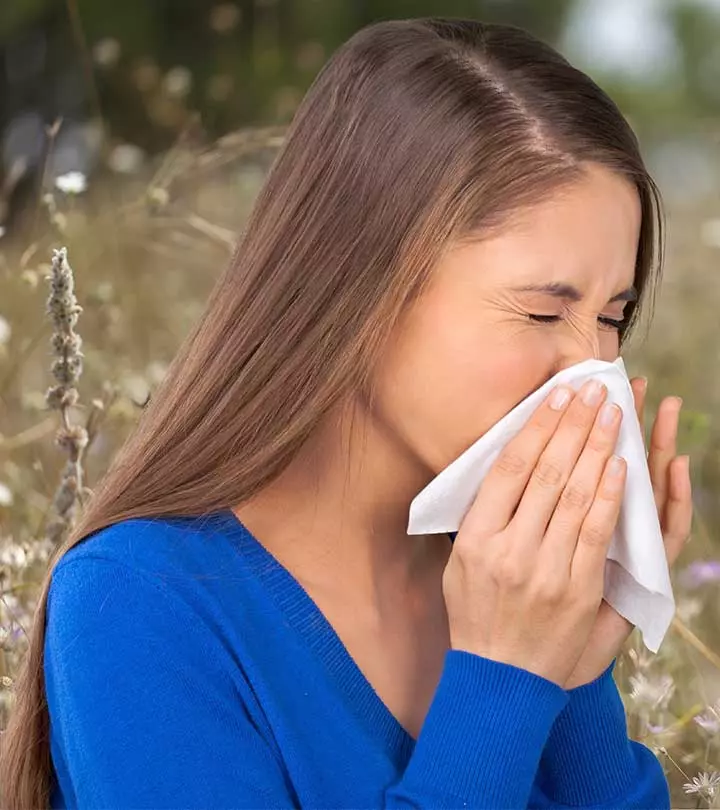

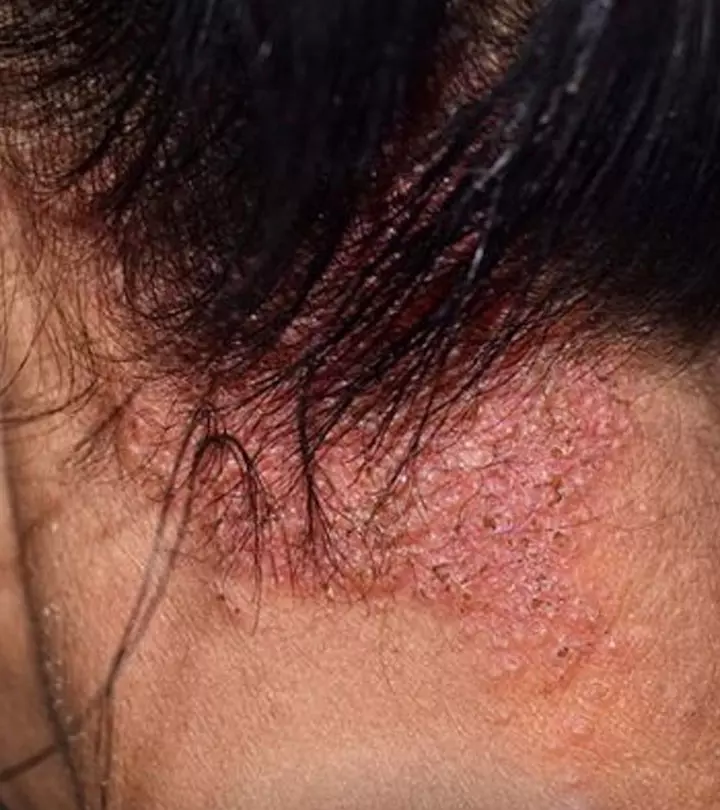




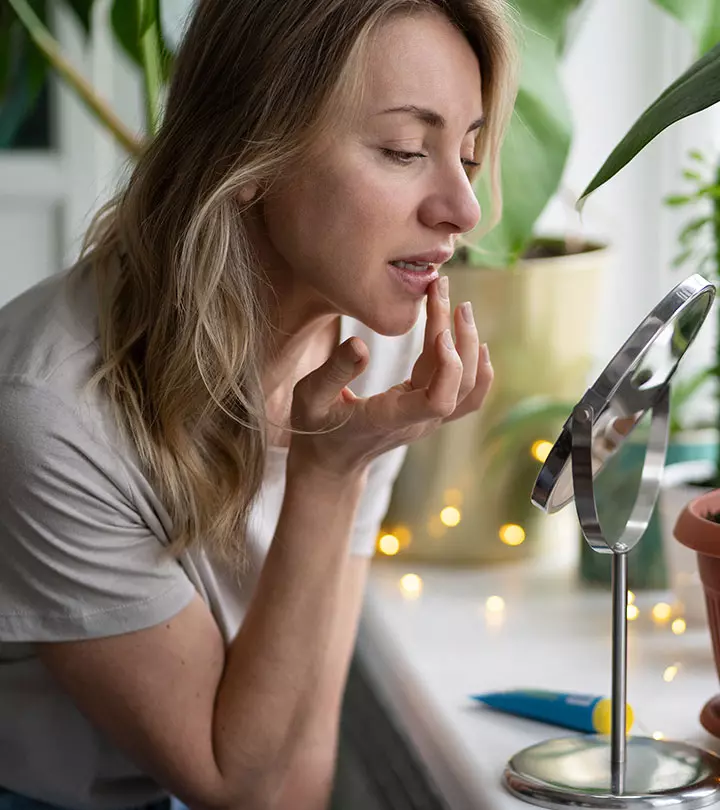


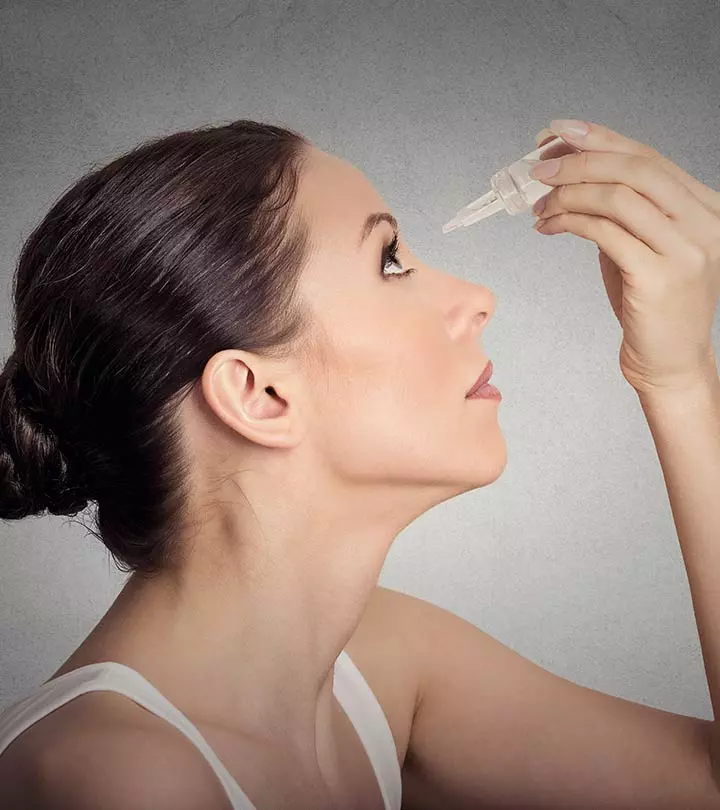






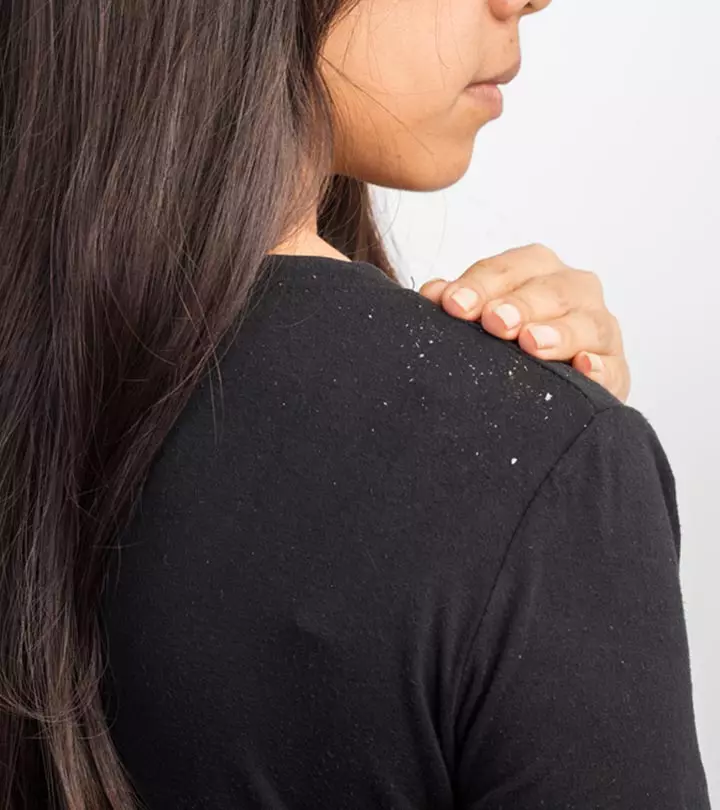


Community Experiences
Join the conversation and become a part of our empowering community! Share your stories, experiences, and insights to connect with other beauty, lifestyle, and health enthusiasts.